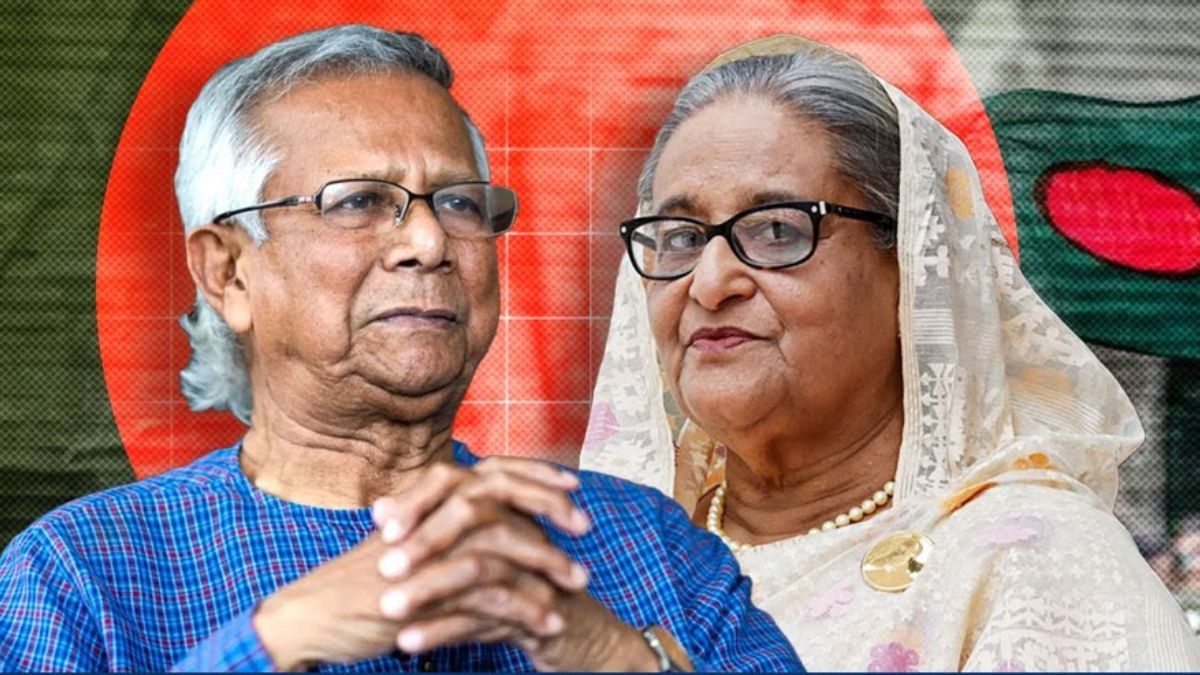Bangladesh’s Public Administration Reform Commission on Wednesday released a list of recommendations with they believe would help in the nation’s rebuilding process. The commission noted that these recommendations would ensure better governance in the country, which has been marred by turbulence following the ousting of Bangladesh’s former Prime Minister Sheikh Hasina.
The commission suggested the formation of two new divisions and the reorganisation of four divisions into four provinces. After the recommendations were released, Bangladesh’s Chief Adviser Professor Muhammad Yunus urged all concerned to accept the reforms suggested by the report.
“I hope all will unanimously accept and implement those (reports),” Yunus said while speaking at a function at the State Guest House Jamuna in the capital on Wednesday. According to The Dhaka Tribune, the Public Administration Reform Commission was led by Abdul Muyeed Chowdhury and the Judiciary Reform Commission was led by Justice Shah Abu Naeem Mominur Rahman. The two Bangladeshi officials handed over the report to the chief advisory on Wednesday.
What are the recommendations?
The following are the measures recommended by both commissions:
1. Reducing the number of ministries
The reform commission called for the reduction of the number of ministries and divisions from 40 to 25. According to the report, the commission recommended categorising all ministries into five clusters, i.e. Statutory Administration; Finance, Industry, and Trade; Physical Infrastructure and Communication; Agriculture and Environment; and Human Resources and Social Development.
It also recommended splitting the existing ICT and Telecommunication Ministry, attaching the Telecommunication Ministry to the Science and Technology Ministry. The committee also emphasised that efficient and impartial public service, political bias and partisan considerations must be avoided within the government.
Impact Shorts
View All2. Establishment of a separate immigration officer
The commission called for the creation of a new force which will be tasked with handling immigration work at airports. It is pertinent to note that currently in Bangladesh a branch of police acts as an immigration officer. The commission stated that forming a separate unit would streamline the process.
3. Reorganisation of four divisions
The commission also proposed reorganizing four old divisions into four provinces to boost decentralization. They also recommended that the governance in Dhaka should follow the “New Delhi model”. These four provinces are Dhaka metropolis, Tongi, Keraniganj, Savar, and Narayanganj.
The commission also called for the dissolution of the Zila Parishad and said that the body’s power and responsibilities should be in the hands of the proposed government. The commission also recommended dissolving the existing Zila Parishad and transferring its responsibilities to the proposed state government.
4. Discouraging military appointments in Civil Service
The reform group suggested the Bangladeshi government not appoint military officers to civil service positions on deputation. This has been an existing trend in the Bangladeshi politics. Currently, many Army, Navy, and Air Force officers tend to work in top and mid-level positions in several government offices. However, the commission said that returned army officials can be deployed in these roles instead of serving officers.
5. Time of Retirement
The commission proposed that any government official would be allowed to retire after 15 years of service. It also suggests banning the current practice of forced retirement after 25 years of service.
6. Bureaucratic overhaul
At the heart of the commission’s recommendation lies the suggestion to make administration officers more accountable and free from Pro-Hasina bureaucrats. They called for the formation of an independent investigative commission to verify the activities of bureaucrats who once aided the ousted government.
The commission said that the officers aiding the Haisna regime in money laundering and the massacre during the July-August Mass Uprising had"defamed the bureaucracy". The commission also recommended banning government officers from participating in any political activities.
After receiving the report, Yunus said: “We have many bitter experiences of harassment, humiliation, and insult. We have experience of forgetting about our demands and rights.” He insisted that it was a matter of hope that the reform report would make people free and get back their rights.
With inputs from agencies.
)